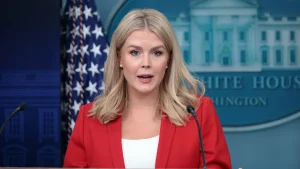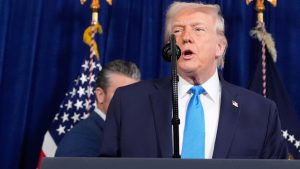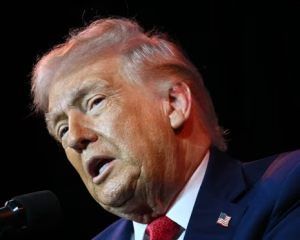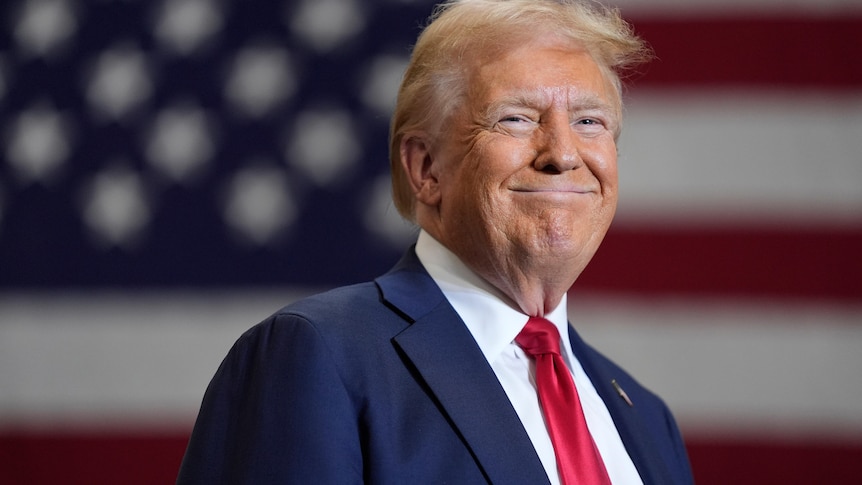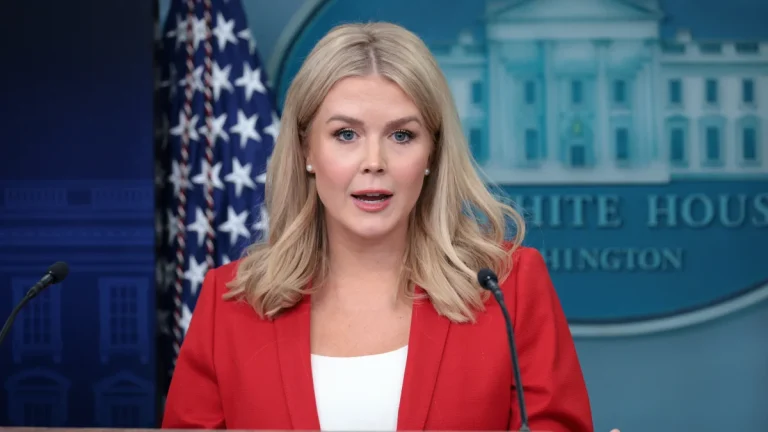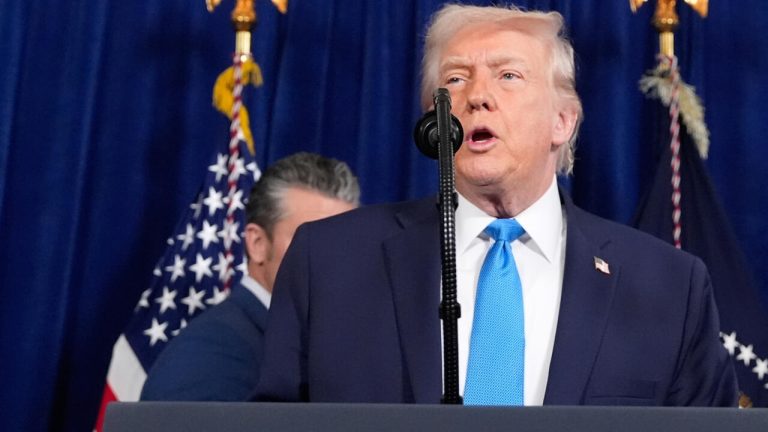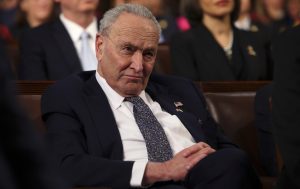President Donald Trump over the weekend unveiled a bold plan to reshape the way federal healthcare subsidies are distributed under the Affordable Care Act (ACA). Instead of sending funds to insurance companies, Trump proposes that the government put the money directly into the hands of Americans so they can purchase their own healthcare.
Trump framed the move as a way to empower citizens while addressing what he calls the “flaws” of the current system. Posting on Truth Social, he wrote, “I am recommending to Senate Republicans that the Hundreds of Billions of Dollars currently being sent to money-sucking Insurance Companies… BE SENT DIRECTLY TO THE PEOPLE SO THAT THEY CAN PURCHASE THEIR OWN, MUCH BETTER, HEALTHCARE, and have money left over.”
“This is about taking power away from the BIG, BAD Insurance Companies and giving it to the people,” Trump added. “We are terminating, per dollar spent, the worst Healthcare anywhere in the World, ObamaCare.”
Direct Payments vs. Insurance Companies
Trump has long criticized the ACA for what he sees as a system that enriches health insurers while failing everyday Americans. His new proposal would redirect federal funds from insurers straight to citizens’ Health Savings Accounts (HSAs) or similar mechanisms, giving individuals more control over their coverage and costs.
“This enrichment of Health Insurance companies must stop,” Trump wrote. “It is long past time to lower Premiums, not enrich Insurance Companies. I stand ready to work with both Parties to solve this problem once the Government is open. Stop terrorizing the American People. Stop pushing failed policies!”
The president argues that direct payments would create a more transparent, accountable system where Americans decide how to spend their healthcare dollars, rather than relying on large insurers to manage subsidies.
Blaming Democrats and the Government Shutdown
Trump tied his healthcare overhaul directly to the recent government shutdown, which stemmed from disputes over extending COVID-era Obamacare subsidies. He accused Democrats of prioritizing insurance companies over the public:
“Democrats claim to be working for ‘the little guy,’ and driving down your Health Insurance, but the OBAMACARE SCAM goes STRAIGHT TO THEIR BEST FRIENDS IN THE INSURANCE INDUSTRY,” Trump posted.
He warned that if Democrats succeed in extending the current system, insurers would again profit at the expense of American families. “If Democrats get their way again, they’re in for another HUGE Payday at the expense of the American People. NO DEAL!”
Health Savings Accounts as a Solution
As part of his plan, Trump suggested depositing subsidies directly into Americans’ HSAs, which he says he expanded during his administration. “Republicans should give money DIRECTLY to your personal HEALTH SAVINGS ACCOUNTS,” he wrote, positioning the proposal as a way to give people control over their own healthcare while bypassing insurance companies entirely.
Trump also shared a graphic showing that major insurance company stocks surged dramatically after Obamacare’s enactment in 2010, reinforcing his argument that the system benefits corporations far more than patients.
Timing Ahead of Shutdown Resolution
Trump’s posts coincided with a bipartisan deal to end the government shutdown on Monday. The agreement included a promise from Senate Republicans to hold a vote later on whether to extend COVID-era ACA subsidies. While the deal did not immediately change policy, Trump’s direct-payment plan now emerges as a competing vision for healthcare reform.
Senate Majority Leader John Thune (R-S.D.) stated, “As I have said for weeks to my Democrat friends, I will schedule a vote on their proposal, and I have committed to having that vote no later than the second week in December.”
Trump’s timing suggests he is seizing the moment to frame healthcare as a defining issue in the post-shutdown political conversation, emphasizing the contrast between his approach and the existing ACA structure.
Challenges and Criticism
Despite its popularity among Trump supporters, the plan faces logistical and political hurdles. Implementing direct payments on a nationwide scale would require significant changes to federal law and oversight, and could create new challenges in ensuring equitable access to care.
Critics argue that while giving money directly to Americans is appealing in theory, it may not address deeper issues such as rising medical costs, limited provider networks, or gaps in coverage. Others note that coordination between federal agencies and insurers would remain essential to prevent fraud and ensure healthcare access.
A Bold Political Statement
Trump’s direct-payment plan is more than a policy proposal—it’s a political statement. By framing the ACA as a system that benefits insurers over Americans, and proposing direct payments as the solution, Trump positions himself as a champion for voter frustration over rising healthcare costs.
The narrative reinforces his broader messaging: that Democrats and insurance companies have failed ordinary Americans, and that a simpler, citizen-focused approach is both necessary and achievable.
The Next Steps
Whether Congress acts on Trump’s proposal remains uncertain. Republicans would need to pass new appropriations or amend the ACA framework to redirect funds, while Democrats would likely resist significant changes. However, the timing—right before a key vote on Obamacare subsidies—ensures the plan will dominate political discourse in the coming weeks.
Trump’s move also sets up a clear contrast for voters, highlighting a fundamental debate about the structure of healthcare in America: continue sending subsidies to insurers or empower citizens directly.

Emily Johnson is a critically acclaimed essayist and novelist known for her thought-provoking works centered on feminism, women’s rights, and modern relationships. Born and raised in Portland, Oregon, Emily grew up with a deep love of books, often spending her afternoons at her local library. She went on to study literature and gender studies at UCLA, where she became deeply involved in activism and began publishing essays in campus journals. Her debut essay collection, Voices Unbound, struck a chord with readers nationwide for its fearless exploration of gender dynamics, identity, and the challenges faced by women in contemporary society. Emily later transitioned into fiction, writing novels that balance compelling storytelling with social commentary. Her protagonists are often strong, multidimensional women navigating love, ambition, and the struggles of everyday life, making her a favorite among readers who crave authentic, relatable narratives. Critics praise her ability to merge personal intimacy with universal themes. Off the page, Emily is an advocate for women in publishing, leading workshops that encourage young female writers to embrace their voices. She lives in Seattle with her partner and two rescue cats, where she continues to write, teach, and inspire a new generation of storytellers.

